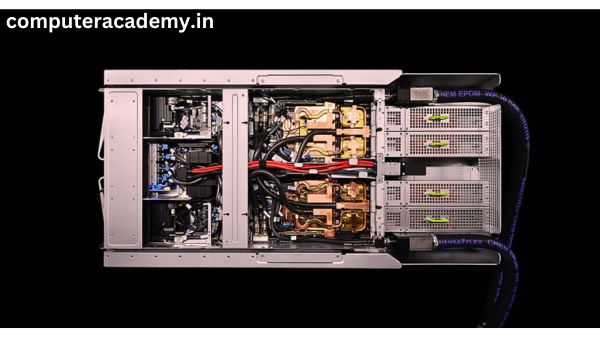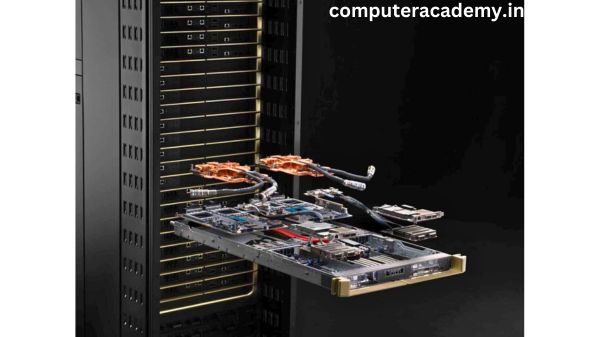NVIDIA’s Innovations at Hot Chips 2024: A Deep Dive into the Future of AI and Data Center Computing

Introduction
NVIDIA engineers are set to unveil groundbreaking advancements at the Hot Chips 2024 conference, and Processor Designa premier event for processor and system architects from both industry and academia. The conference has evolved into a crucial platform for discussing innovations in the trillion-dollar data center computing market. NVIDIA’s presentations will focus on the NVIDIA Blackwell platform, new research in liquid cooling, and the role of AI agents in chip design.
NVIDIA Blackwell Platform: Powering the Next Generation of AI
NVIDIA’s Blackwell platform represents a comprehensive solution for the next generation of AI, combining multiple chips, systems, and the NVIDIA CUDA software. The platform is designed to support AI across various use cases, industries, and countries.
- Key Components of the Blackwell Platform:
- NVIDIA Blackwell GPU: Central to AI and accelerated computing.
- Grace CPU: Provides computational power for complex tasks. and Processor Design
- BlueField DPU: Enhances data processing capabilities.and Processor Design
- ConnectX Network Interface Card: Facilitates seamless network connectivity.
- NVLink Switch: Enables high-speed interconnectivity.and Processor Design
- Spectrum Ethernet Switch & Quantum InfiniBand Switch: Provide advanced networking solutions.
These components work in tandem to create a new standard for AI performance, energy efficiency, and accelerated computing. and Processor Design

NVIDIA GB200 NVL72: Revolutionizing AI System Design
The NVIDIA GB200 NVL72 is a multi-node, liquid-cooled, rack-scale solution that integrates 72 Blackwell GPUs and 36 Grace CPUs. This system sets a new benchmark for AI system design, particularly for large language model (LLM) inference, which requires low-latency, high-throughput token generation. The GB200 NVL72 delivers up to 30 times faster inference for LLM workloads, enabling the real-time operation of trillion-parameter models. and Processor Design
NVLink Interconnect Technology: Enhancing AI Throughput and Latency
NVIDIA’s NVLink interconnect technology is crucial for enabling all-to-all GPU communication. This technology supports record high throughput and low-latency inference, which is essential for generative AI applications. The NVLink technology ensures that GPUs can communicate efficiently, enhancing the overall performance of AI systems. and Processor Design
NVIDIA Quasar Quantization System: Pushing the Limits of AI Computing
The NVIDIA Quasar Quantization System combines algorithmic innovations, NVIDIA software libraries, and tools with Blackwell’s second-generation Transformer Engine. This system supports high accuracy on low-precision models, which is particularly beneficial for LLMs and visual generative AI. By pushing the limits of physics, the Quasar Quantization System accelerates AI computing, making it more efficient and powerful. and Processor Design
Liquid Cooling: The Future of Data Center Efficiency
As data centers continue to evolve, the traditional air-cooling methods are being replaced by more efficient and sustainable liquid-cooling solutions. Liquid cooling is more effective at removing heat from systems, allowing data centers to handle larger workloads with lower energy consumption. and Processor Design
- Hybrid Liquid-Cooling Solutions:
- Retrofitting Existing Data Centers: Adding liquid-cooling units to existing racks.
- Direct-to-Chip Liquid Cooling: Using cooling distribution units to cool chips directly.
- Immersion Cooling Tanks: Fully submerging servers in liquid cooling tanks.
These solutions not only improve energy efficiency but also reduce operational costs. NVIDIA’s work as part of the COOLERCHIPS project, a U.S. Department of Energy initiative, highlights the potential of advanced cooling technologies. By using the NVIDIA Omniverse platform to create physics-informed digital twins, researchers can model energy consumption and cooling efficiency, optimizing data center designs for the future. and Processor Design
AI Agents: Revolutionizing Processor Design
Designing cutting-edge processors is a complex challenge that requires fitting maximum computing power onto a small silicon chip. AI models are increasingly supporting this work by enhancing design quality, improving productivity, and automating time-consuming tasks.
- AI Models in Processor Design:
- Prediction and Optimization Tools: Help engineers analyze and improve designs rapidly.
- LLM-Powered Agents: Assist in generating code, debugging design problems, and answering complex questions. and Processor Design
AI agents, particularly those powered by large language models, are being developed to take on tasks autonomously. In microprocessor design, these agents use customized circuit design tools, interact with experienced designers, and learn from a vast database of human and agent experiences. NVIDIA’s engineers are not only developing these AI agents but also actively using them in their work. Examples include AI agents used for timing report analysis, cell cluster optimization, and code generation, with some work being recognized at prominent industry conferences.
Conclusion
NVIDIA’s presentations at Hot Chips 2024 will showcase the company’s commitment to advancing AI, data center efficiency, and processor design. The NVIDIA Blackwell platform, with its combination of multiple chips and innovative technologies, sets a new standard for AI computing. The research on liquid cooling presents a path toward more sustainable and efficient data centers, while AI agents promise to revolutionize the way processors are designed. These innovations highlight NVIDIA’s role as a leader in the field of computing, driving performance, efficiency, and optimization across the industry. and Processor Design
Tabular Data
| Topic | Key Points | Technologies/Components |
|---|---|---|
| NVIDIA Blackwell Platform | Supports AI across various use cases, industries, and countries. | Blackwell GPU, Grace CPU, BlueField DPU, ConnectX NIC, NVLink Switch, Spectrum & Quantum Switches |
| NVIDIA GB200 NVL72 | Multi-node, liquid-cooled solution for AI system design. | 72 Blackwell GPUs, 36 Grace CPUs |
| NVLink Interconnect Technology | Enables all-to-all GPU communication for high throughput and low-latency inference. | NVLink interconnects |
| NVIDIA Quasar Quantization System | Supports high accuracy on low-precision models for LLMs and visual generative AI. | Quasar Quantization System, Blackwell’s Transformer Engine |
| Liquid Cooling | More efficient than air cooling, reducing energy consumption and operational costs. | Hybrid cooling solutions, cooling distribution units, immersion cooling tanks |
| AI Agents in Processor Design | Enhance design quality, improve productivity, and automate tasks in processor design. | Prediction tools, optimization tools, LLM-powered agents |

TrUhaVOLB
Thanks for sharing. I read many of your blog posts, cool, your blog is very good.
Can you be more specific about the content of your article? After reading it, I still have some doubts. Hope you can help me.
Thanks for sharing. I read many of your blog posts, cool, your blog is very good.
Can you be more specific about the content of your article? After reading it, I still have some doubts. Hope you can help me.